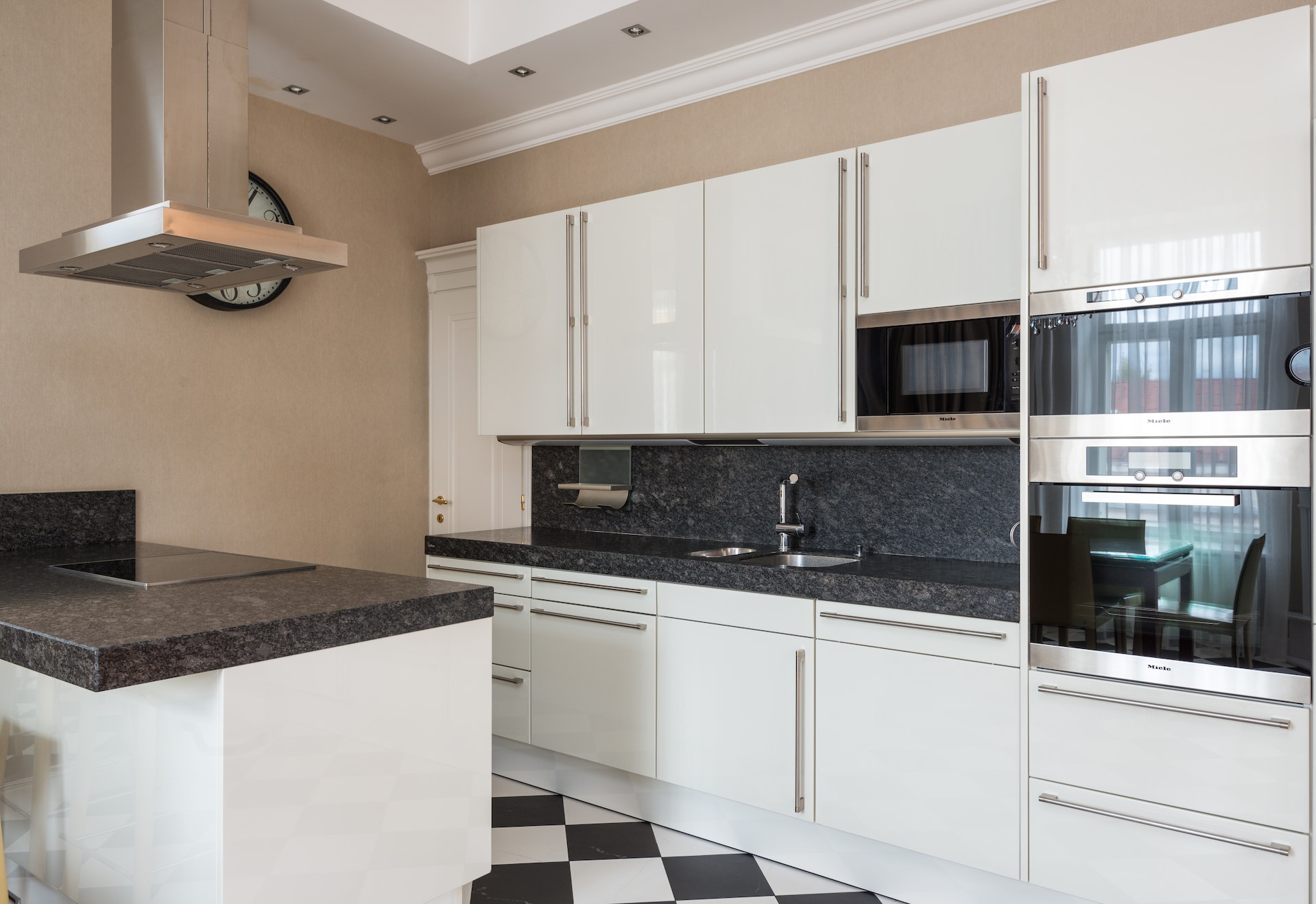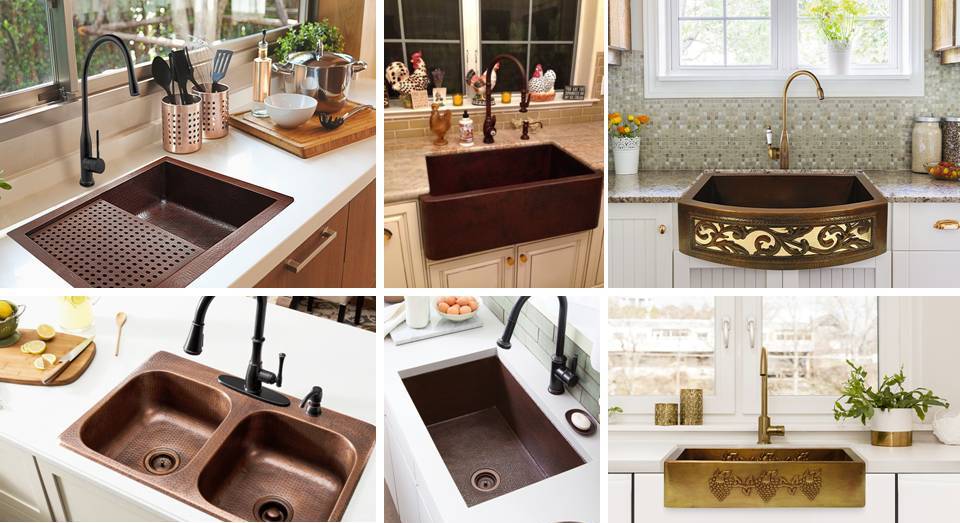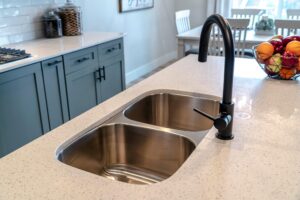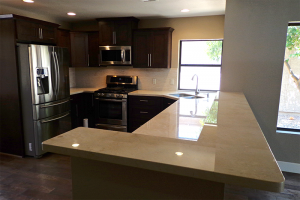What is Granite
Granite is an igneous rock that is materialized from the slow crystallization of magma deep beneath the Earth’s surface. It is composed primarily of quartz, feldspar, and mica, along with other minerals that give it its unique properties and appearance.
Granite is renowned for its durability, strength, and natural beauty, making it a highly sought-after material for various applications, including countertops, flooring, wall cladding, and decorative features. It is commonly used in residential and commercial construction due to its aesthetic appeal and longevity.
Granite formation begins when molten magma cools and solidifies slowly over millions of years. During this slow cooling process, mineral crystals form and interlock, creating the distinctive coarse-grained texture and unique patterns that are characteristic of granite. The specific minerals present in the magma and the rate of cooling determine the color, pattern, and overall appearance of the granite.
Granite Qualities
Granite comes in a vast range of colors, from light shades of white, gray, and beige to darker tones such as black, brown, and green. The mineral composition of the granite influences these colors. For example, granite with a higher concentration of quartz will appear lighter in color, while an abundance of darker minerals like mica or amphibole can create deeper, richer hues.
In addition to its aesthetic qualities, granite is valued for its durability and resistance to scratches, heat, and stains. It is a hard and dense rock that can withstand heavy use and is less susceptible to damage compared to other countertop materials. Granite is also heat-resistant, allowing it to withstand high temperatures without being damaged or discolored.
Granite countertops are often sealed with a protective coating to enhance their resistance to stains and make them easier to maintain. It helps to prevent liquids from penetrating the surface and reduces the likelihood of staining.
Overall, granite is a natural stone that offers a combination of strength, durability, and beauty. Its unique patterns, color variations, and ability to withstand wear and tear make it a popular choice for a wide array of applications in construction and interior design.
Steps on How to Choose Granite Countertops
Selecting granite countertops for your home involves several critical steps to ensure you choose the most suitable material that meets your needs and preferences. Here are the key steps to follow when choosing granite countertops: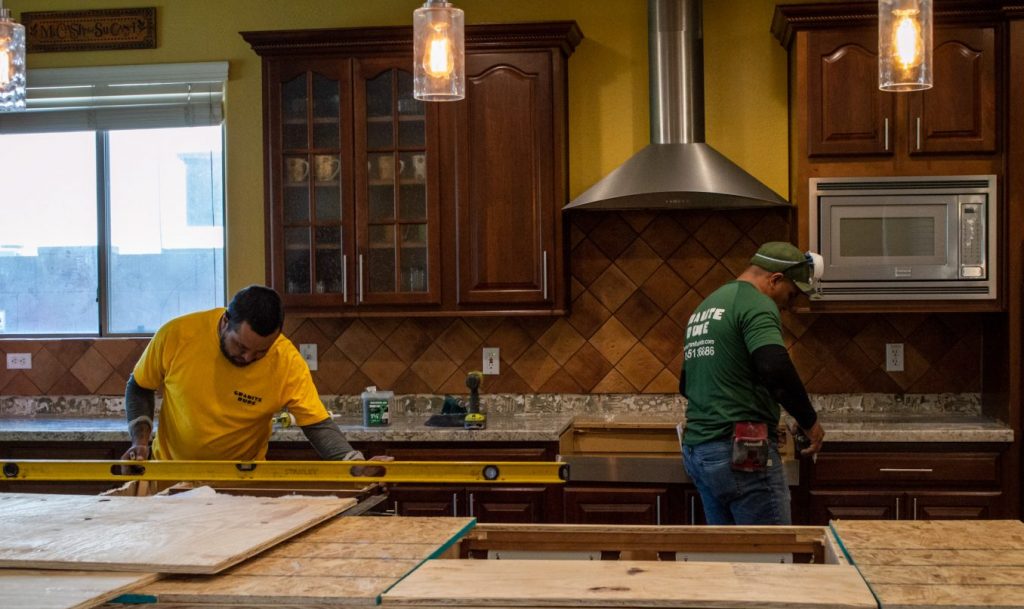
1. Determine Your Requirements:
Start by assessing your specific requirements. Consider elements such as the size and layout of your kitchen or bathroom, the style and design theme you want to achieve, and any specific features or functionality you need from the countertops. It will help you narrow down your options and make informed decisions.
2. Research Granite Varieties:
Granite comes in a wide range of colors, patterns, and textures. It will help to research different varieties of granite to find the ones that appeal to you aesthetically and align with your design vision. Look for samples and images, or visit showrooms to see the granite in person and get a better sense of its appearance and characteristics.
3. Set a Budget:
Determine your budget for the granite countertops. Granite prices can vary based on factors such as rarity, quality, color, and origin. Consider the overall cost of the material, fabrication, installation, and any additional features or upgrades you may want. Setting a budget will help guide your choices and ensure you find options that align with your financial parameters.
4. Find a Reputable Supplier:
Look for reputable suppliers or stone fabricators specializing in granite countertops. Read customer reviews, ask for recommendations from friends or professionals, and visit showrooms to evaluate the quality of their products and services. A reliable supplier will provide you with a wide selection of granite options, expert guidance, and a seamless installation process.
5. Choose the Right Slab:
Once you have identified a supplier, visit their facility to select the actual granite slab for your countertops. This step is crucial as granite can vary significantly in appearance and pattern from one slab to another. Assess the slabs’ color, veining, and overall look to find one that aligns with your design preferences. Keep in mind the size and layout of your countertops to ensure the slab is sufficient to cover the required area.
6. Consider Edge Profiles:
Granite countertops can be customized with different edge profiles to enhance their visual appeal. Explore various edge profiles, such as straight, beveled, bullnose, or ogee, and choose one that complements your overall design scheme and personal style.
7. Finalize the Details:
Discuss the specifics of the project with the supplier, including measurements, installation timeline, and any additional requirements or features you want. Ensure you understand the terms and conditions, warranties, and any maintenance recommendations for your granite countertops.
8. Schedule Installation:
Once you have finalized the details, schedule the installation of your granite countertops with the supplier. Ensure that experienced professionals carry out the installation to guarantee proper fitting, sealing, and finishing.
By following these steps, you can make a well informed decision and select the suitable granite countertops that meet your aesthetic preferences, functional requirements, and budgetary constraints. Researching, visiting showrooms, and consulting with professionals will help ensure a successful and satisfying outcome for your granite countertop project.
Why Choose Granite Countertops
Granite countertops are an excellent choice for kitchen and bathroom surfaces due to their durability, aesthetic appeal, and natural beauty. They are composed mainly of quartz, feldspar, and other minerals, which give it its unique color variations and patterns.
Granite countertops offer several advantages that make them highly desirable in both residential and commercial settings: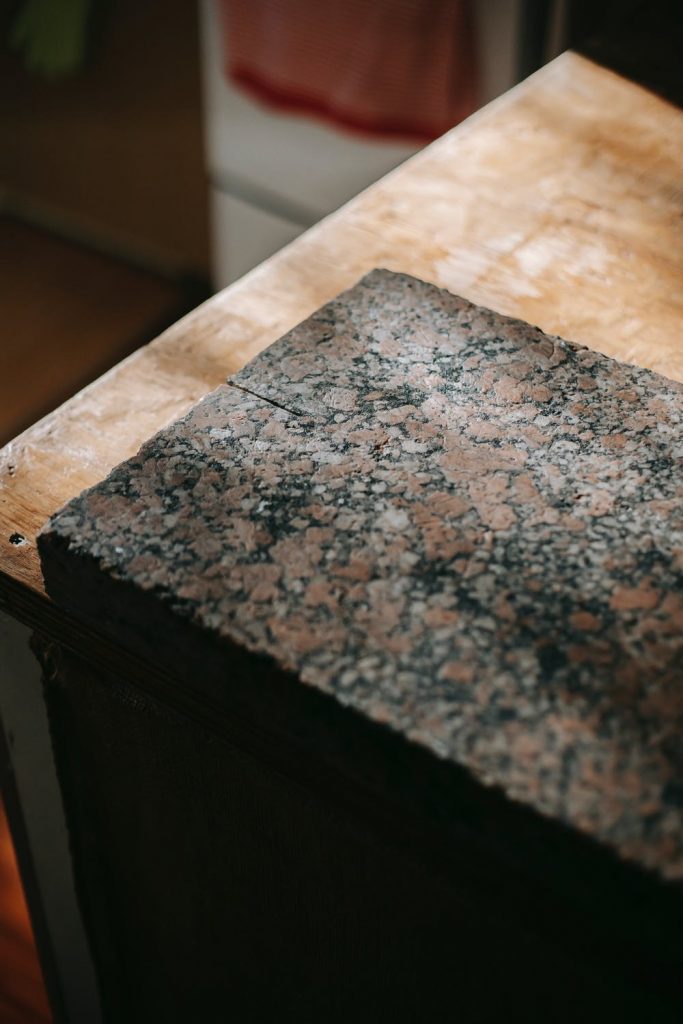
-
Durability
Granite is one of the hardest natural stones, making it extremely durable and resistant to scratches, heat, and stains. It can withstand heavy use and is unlikely to chip or crack under normal conditions, making it an outstanding choice for high-traffic areas like kitchens.
-
Aesthetic Appeal
Granite countertops are prized for their natural beauty and unique patterns. Each granite slab is distinct, with its own variations in color, veining, and speckles, giving each countertop a unique look. They come in a vast range of colors, from light neutrals to rich earth tones, allowing homeowners to choose a style that complements their décor.
-
Heat Resistance
Granite is naturally heat-resistant, making it ideal for kitchen countertops where hot pots, pans, and appliances are frequently placed. It can withstand high temperatures without damaging or discoloration, providing a safe and convenient surface for cooking and food preparation.
-
Low Maintenance
Granite countertops are relatively easy to maintain. They are non-porous or have very low porosity, meaning they do not absorb liquids or harbor bacteria. Routine cleaning using mild soap and water is usually sufficient to keep them looking their best. However, it is recommended to seal granite countertops periodically to enhance their resistance to stains and maintain their appearance.
-
Longevity
When properly cared for, granite countertops can last for decades, making them a long-term investment. They should withstand daily wear and tear and retain their beauty and functionality over time, making them a desirable feature for homeowners and adding value to a property.
It’s important to note that granite countertops should be installed by professionals who can ensure proper sealing, cutting, and installation to achieve the best results. Additionally, each granite slab is unique, and color, pattern, and texture variations should be considered when you choose and design your countertops.
Overall, granite countertops are a luxurious and durable option that can transform the look and functionality of a kitchen or bathroom. With their natural beauty, durability, and timeless appeal, granite countertops continue to be a prevalent choice for homeowners seeking a high-quality and visually striking surface.
Factors to Consider when Choosing Granite Countertops
While granite countertops offer numerous advantages, it’s essential to consider the potential disadvantages as well. Here are some factors to keep in mind:
1. Cost
Granite countertops can be costlier than other countertop materials, like laminate or tile. The cost of the material, fabrication, and installation can add up, making it a significant investment. However, it’s important to note that the long-term durability and aesthetic appeal of granite may offset the initial expense.
2. Porosity
Although granite is generally considered a durable material, it is a naturally porous stone. It means that if not properly sealed, it can absorb liquids, leading to staining or discoloration. However, routine sealing and proper maintenance can help mitigate this issue.
3. Maintenance
While granite is relatively low maintenance, it does require regular care to keep it looking its best. Routine sealing is necessary to maintain its resistance to stains and spills. Additionally, it’s important to avoid harsh or abrasive cleaners that can damage the surface. Proper cleaning and maintenance practices are essential to preserve the appearance and longevity of granite countertops.
4. Susceptibility to Cracks and Chips
While granite is known for its durability, it is not entirely immune to cracks or chips. Excessive force or impact from heavy objects can potentially cause damage to the surface. However, with proper care and avoiding extreme stress on the countertop, you can minimize the risk of cracks or chips.
5. Limited Availability
Although granite is a popular countertop material, the availability of specific colors or patterns can be limited. Certain unique or rare granite varieties may be more challenging to find, especially if you have particular preferences in mind. However, there is still a wide range of granite options available to suit different design aesthetics.
6. Weight
Granite is a heavy material, which means that proper support is necessary during installation. The weight of the granite countertops may necessitate additional structural reinforcement in some cases. It’s vital to consult with professionals to ensure that the underlying cabinets and support structures can handle the weight of the granite.
7. Variation in Appearance
While the unique patterns and color variations of granite are often seen as an advantage, some people may find it challenging to match the overall aesthetic of their space due to the natural variations in the stone. Viewing and selecting the actual slabs is recommended to ensure that you are satisfied with the specific pattern and color variations.
By considering these factors, you can make an informed decision on whether granite countertops are the right choice for your needs and preferences. Proper maintenance and care can help mitigate some of the concerns associated with granite. This ensures that it remains a durable and visually appealing surface in your home.
Choose the Best Granite Countertops with Ease
In conclusion, choosing granite countertops for your home can be a fantastic investment that offers durability, aesthetic appeal, and a touch of natural beauty. While there are some disadvantages to consider, the advantages of granite countertops often outweigh the potential drawbacks.
Granite countertops are known for their strength and longevity. These traits make them a durable choice that can withstand the demands of daily use. They provide a wide range of colors, patterns, and textures, letting you find the perfect fit for your design preferences. The unique characteristics of each granite slab ensure that your countertops will have a one-of-a-kind look.
Additionally, granite countertops are heat-resistant, providing a safe surface for placing hot pots and pans without fear of damage. With proper sealing and maintenance, they can resist stains and remain in excellent condition for years to come.
While the initial cost of granite countertops may be higher compared to other materials, their longevity and timeless appeal can make them a worthwhile investment. When considering your budget, it’s essential to factor in the cost of fabrication, installation, and routine maintenance.
Remember to weigh the advantages and disadvantages, considering factors such as cost, maintenance requirements, and potential limitations in availability and matching the desired aesthetic. By doing so, you can make an informed decision and enjoy the many benefits that granite countertops bring to your home.
Ultimately, granite countertops offer a timeless and elegant addition to your kitchen or bathroom, enhancing both the visual appeal and functionality of your space. With proper care, they can become a focal point that adds value and charm to your home for years to come.
Granite Dude Offers the Best Granite Selection!
When you choose granite countertops, working with a reputable supplier or stone fabricator who can provide high-quality materials and expert installation is essential. Taking the time to view and select the actual slabs ensures that you’re satisfied with the color, pattern, and overall appearance of the granite. With Granite Dude, you can be sure that you get to choose the best granite countertops for your home! Contact us for a wide selection of granite today!

